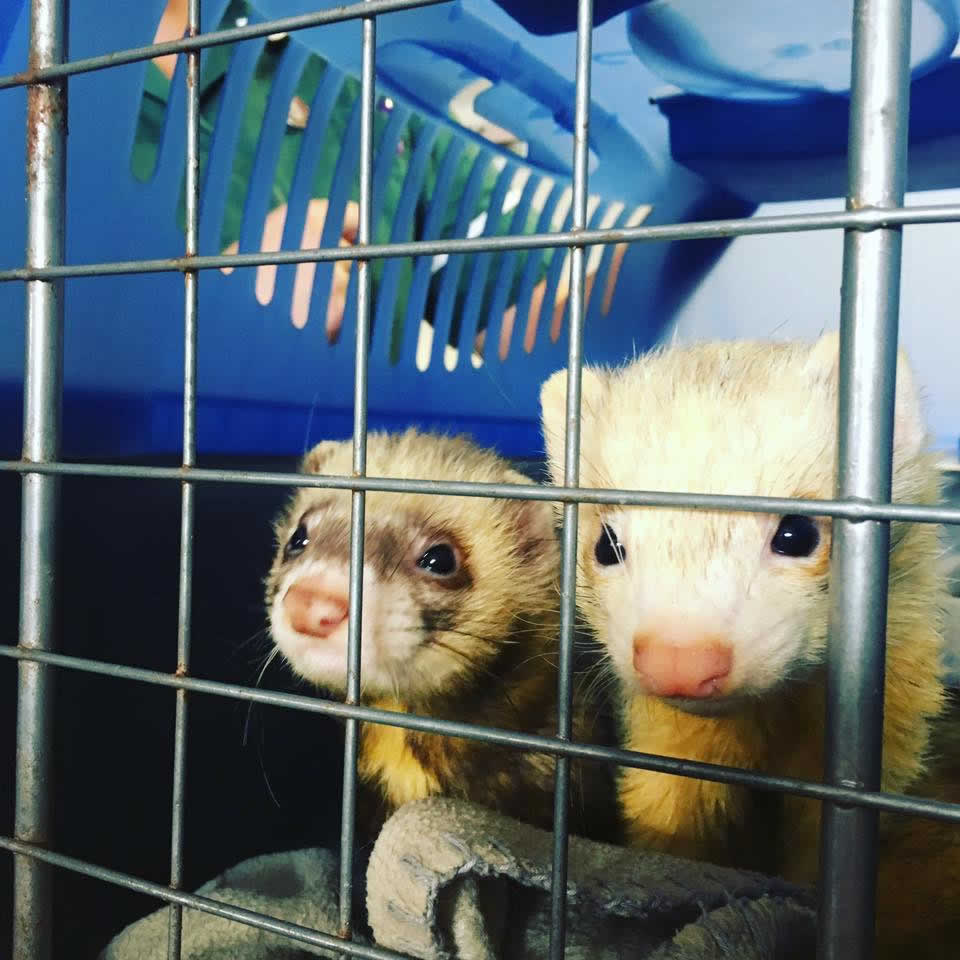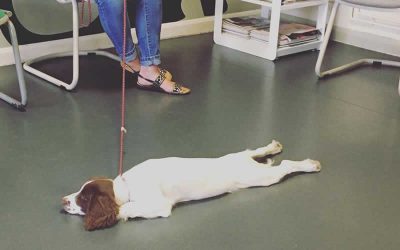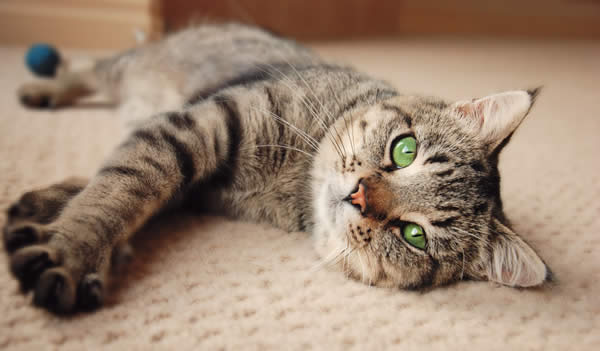OUR FERRET VISITORS
With our recent visitors to Melton Vets; we thought we’d add a section all about ferrets as they make very popular pets:
Ferrets are true carnivores with a keen hunting ability and predator mentality. They are inquisitive, playful and constantly on the move when awake.
They need devoted and educated owners.

Feeding your Ferret
*Ferrets are carnivores and require regular and high levels of dietary protein and fat to develop strong muscles, healthy bones and to prevent illness.
*They have little need for carbohydrate and fibre as they produce most of their own glucose and therefore do not need to eat much carbohydrate.
*Ferrets feed throughout the day eating small frequent meals, this is due to the fact that they have an extremely short digestive tract and food passes through within 3 – 4 hours. In order to fulfil their nutritional needs and energy levels, they must feed regularly.
*The average ferret will eat 5 – 7% of its body weight on a daily basis. This is about 50-75 grams for a ferret weighing 1kg.
*These are approximate levels and will differ from animal to animal and according to lifestage.
*Ferrets will require larger amounts during growth, gestation and reproduction.
*Reproducing females require a minimum of 30% protein from their diet, and kittens require high levels of protein and fat throughout their growth phase.
*Feed levels may drop during later life and should be adjusted based on intake, demand and physiological changes, such as weight gain. Some people choose to feed dried cat food which is adequate for a ferret, but choose a good quality food such as Hills or Iams.
*Do not feed your ferret dog food as its protein levels are not high enough.
*Feeding a complete dried food provides all the nutritional requirements your ferret needs.
*Feeding fresh food requires supplementation of vitamins and minerals and may result in deficiency or more commonly, poisoning, resulting in a range of avoidable illnesses and conditions.
*Snacks that can be given include cooked chicken pieces, raisins, grapes, broccoli or other fresh fruits.
*Never give dairy products or chocolate. Chocolate and caffeine are poisonous and cereals or sugary treats affect the pancreas so must be avoided.
*A fatty acid supplement should be given if not feeding a balanced ferret food.
*Always ensure that fresh water is available at all times, as eating dried food will often lead to higher demands of water on a daily basis.
Keeping your ferret happy
*In addition to choosing the right food for your ferret, they also need to be kept in the correct living environment.
*Choose a large cage for your pet as ferrets left with free run of the house will cause a lot of damage.
*There are also potential dangers in your home such as fridges, dryer vents and drains as ferrets are able to fit into very small spaces.
*You need to place a good quality water bottle and ceramic food bowl in an easily accessible place or use wire cages with catch pans at the bottom and secure hinges.
*Expect your mischievious ferret to rearrange his furniture on a regular basis. A litter tray is also needed to keep the cage clean and odour free if emptied on a daily basis.
*Use woodshavings in the litter tray for a high degree of absorption and in the hutch or enclosure use dust extracted bedding material to prevent respiratory or skin problems.
*Place some droppings in the tray to encourage your ferret to use it and place him in it if you notice any signs of him pacing or circling or even just as he awakens to get him used to it. Be patient. Ferrets do not take to litter trays as easily as cats do. Do not use clumping litter (which is purchased from pet shops). Use normal odour free cat litter.
*Ferrets enjoy sleeping above ground level so an ideal accessory to keep them happy is a hammock. A simple square of material hung from the top of the cage will serve this purpose.
*They are extremely active and very playful. Always find time to socialise with your ferret on a daily basis, this will add variety and stimulation to your pet’s day.
* Ferrets will play with small balls and enjoy a variety of tunnels to play in. A good accessory is a feeding ball to make your ferret work for its food and increase their exercise period and stimulation.
*Your ferret must exercise and be handled as much as possible or he will become nervous. Playing with a toy that he cannot chew and swallow attached to a small stick will keep him very happy.
*If you have small mammals such as rabbits or hamsters, you must exercise extreme caution with regards to ferrets.
*They are natural enemies, and your ferret may kill them. In general, ferrets usually get along with cats and dogs.
*It is not recommended to leave hunting breeds like terriers and hounds alone with ferrets as their instincts may take over and your ferret could be hurt.
*Jills (females) are induced or reflex ovulators ie they will ovulate if mated. If they are unmated, they remain in oestrus for a prolonged period, resulting in oestrogen-induced bone marrow suppression and they therefore become anaemic. In the UK, the breeding season is from spring to autumn.
*Oestrus is shown externally by a greatly enlarged reddish vulva. In the hob (male), the testes descend into the scrotum only in the breeding season. Mating is a rough, noisy and prolonged affair with much biting of the scruff of the female by the male.
Handling ferrets correctly
*Allow your ferret to come to you before picking him up. This prevents frightening him and reduces the risk of being bitten.
*If he is prone to nipping, train him by scruffing him every time he nips and saying NO.
*Handle kits (young) as much as possible to prevent biting or purchase your ferret only from a reputable breeder who has handled him as a youngster.
*Ferrets have a natural instinct to bite and hang on with their exceptionally strong jaws.
*Ferrets should be grasped around the shoulders, with your thumb under their mouth and supporting the hind legs with your other hand, then gently bring the ferret against your chest.
*They can be trained to sit quietly in a pouch or pocket with patience and perseverence.
*The ferret has 2 small musk glands at the anus. Their removal for descenting purposes is prohibited in the UK and anyway it does not completely remove the normal musky, ‘ferrety’ odour which is also produced from generalised skin glands.
*You are able to bath your ferret at least twice a month with a mild shampoo.
*To clip your ferrets’ nails, allow him to lick a vitamin treat whilst clipping them to distract him otherwise they move too much.

Join our great team
We are recruiting – find out more about Melton Vets and living in Melton Mowbray
Pet travel changes
While we’re still in the EU, your pet’s blue pet passport will still be valid
Springtime and Easter Pet Dangers
As we have Easter and all its chocolate coming up, we want to make our clients aware of the dangers of chocolate in dogs




